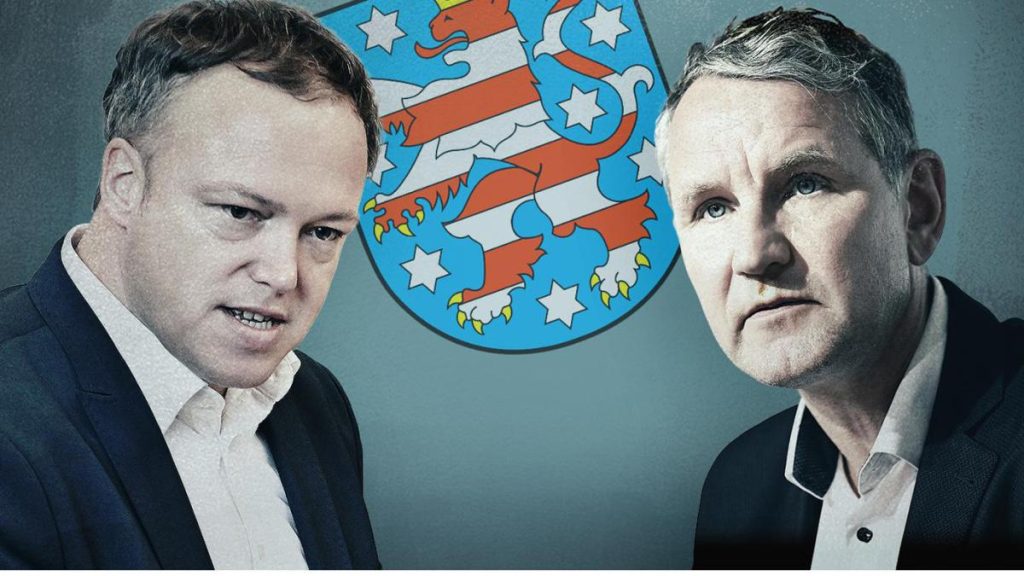A televised debate between Thuringia’s CDU leader Mario Voigt and AfD leader Björn Höcke will take place on Thursday evening and has been sparked by a recent interview in which Voigt criticized Höcke’s far-right stance and anti-Europe policies. The debate, organized by WELT TV, is seen as a bold move by Voigt, who has been criticized for giving a platform to the controversial AfD leader. Despite opposition from other parties and political figures, Voigt defended his decision to engage in a public debate with Höcke, citing the failure of ignoring the AfD’s presence on the political stage and the need to highlight the weaknesses in their positions.
The motivation behind Voigt’s decision is not only strategic but also aims to address the growing popularity of the AfD in Thuringia and prevent a repeat of the 2019 election results where the CDU fell behind both the Left Party and the AfD. Voigt’s acceptance of the debate challenge from Höcke is seen as an attempt to reclaim the political narrative and challenge the dominant positions of the Left and the AfD in the upcoming election. The decision has sparked criticism from other political leaders who believe that engaging in a debate with Höcke legitimizes his extremist views and undermines democratic principles. Despite the controversy, some commentators see Voigt’s willingness to engage in open debate as a necessary step in confronting and challenging the AfD’s positions.
The debate between Voigt and Höcke is viewed as a significant event in the lead-up to the Thuringia state elections in September 2024, where the AfD is currently polling strongly in various regions. The CDU sees itself as the main contender to defeat the AfD and reclaim its political influence in the East German states. The televised debate will address key issues such as Europe, economic policies, and the future direction of Thuringia, providing voters with an opportunity to evaluate and compare the positions of the two parties. The outcome of the debate could have a significant impact on the political landscape in the region and shape the narrative leading up to the elections.
Voigt’s decision to engage in a televised debate with Höcke has received support from some quarters, who see it as a necessary step in challenging the AfD’s narrative and presenting a contrast in policy positions. The discussion around the debate has also highlighted the role of media in shaping political discourse and the importance of allowing for differing viewpoints to be heard and debated openly. The debate is expected to address key issues relevant to Thuringia’s future, including economic policies, Europe, and the role of the state in promoting prosperity and stability. The outcome of the debate could influence voter perceptions and shape the direction of the upcoming state elections in Thuringia and other East German states.
The debate between Voigt and Höcke is seen as a high-stakes political event that could have far-reaching implications for the CDU’s electoral prospects and the future direction of Thuringia. By engaging in a public confrontation with Höcke, Voigt seeks to challenge the AfD’s narrative and prevent the party from gaining further ground in the region. The debate has sparked controversy and criticism from other political figures, who question the wisdom of engaging with the AfD leader. However, some observers argue that open debate and dialogue are essential in a democratic society and that Voigt’s decision reflects a commitment to engaging with different political perspectives in a transparent and constructive manner.


